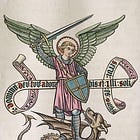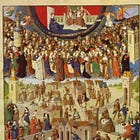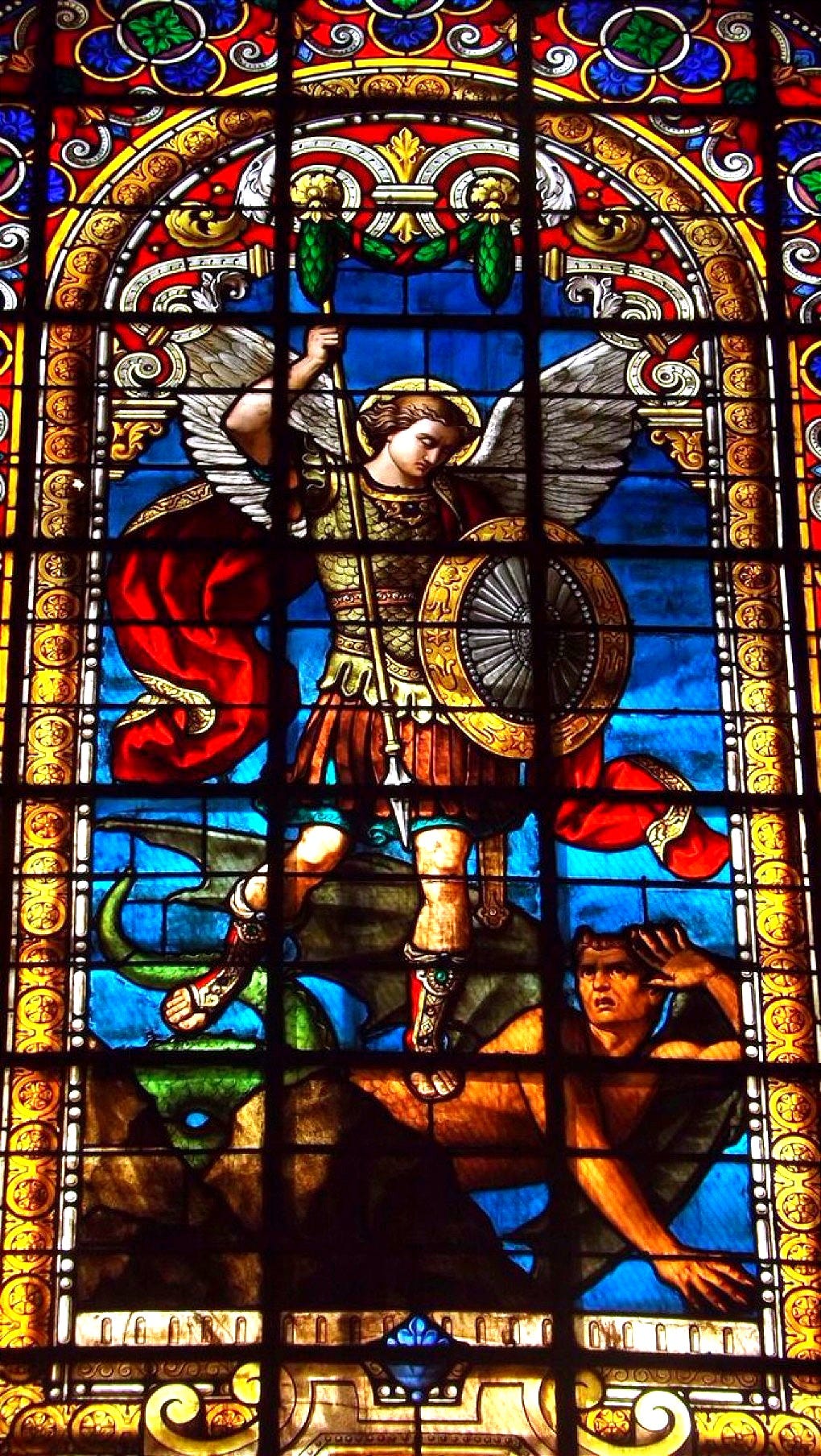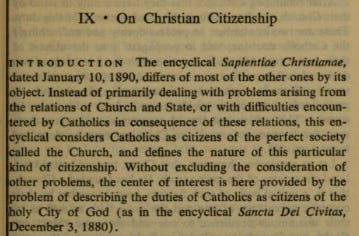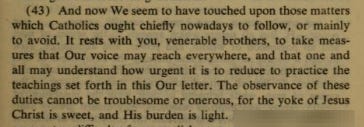In this latest instalment we look at the last of the nine encyclicals which together comprise the Catholic Social Teachings of Pope Leo XIII.
Published in January 1890, On Christian Citizenship reminds us of our duties as citizens of the City of God- and teaches us that there is hope for our world.
This hope resides in what we do. This encyclical is a call to Catholic action.
It shows us what we must to do in order to live the Good Life, that we may recover our nations from the darkness which has consumed them today.

The first encyclical (linked below) showed how the restoration of our world must be founded on the truth, and demonstrated that the correct theory of knowledge is that which corresponds to the natural order created by God.
The second examined the nature and limits of human liberty - raising the question as to whether Man is good enough to be absolutely free. It asks as well - what liberty is it to be liberated into evil? We can see the evidence around us today.
The third shows the sacramental and foundational institution of Christian marriage, and explains why its defence is vital to our civilisation.
The fourth encyclical has one subject - Naturalism and Freemasonry - but as with all the others, its explanatory power illuminations the raising and the ruin of the foundations of our civilisation.
The fifth encyclical -titled Diuturnum - is called “On Civil Government”. It explains that we are at war, and this war is between mankind and The Enemy, which is Satan. This war, we are told, is raging in the institutions of the state.
The sixth encyclical explains how the State can serve the Common Good in aligning itself with the Divine order and the true nature of reality.
Published on December 28th, 1878, the seventh encyclical was titled Quod Apostolici Muneris - and was originally styled as a condemnation of the unholy trinity of “Socialism, Communism, Nihilism” in English.
The eighth encyclical is the masterpiece of the Catholic Social Teaching. Known as Rerum Novarum, it speaks of the rights and duties of capital and labour, showing how class conflict can be replaced with harmony with the mutual recognition of the reciprocal rights and duties of rich and poor.
Rerum Novarum is so replete with the practical wisdom of how to rescue our rotten society that it was treated in three parts. The second is here, the third here.
Every one of the nine encyclicals show how reality itself is to be understood in accordance with the Divine order, and that the defection from this order is chaos.
The Catholic Social Teachings condense some of the most luminous and precious wisdom ever written down.
They can be understood as many things - as a guide as how to live, to determine what is the truth, and perhaps most vitally at this moment - as a manual as to how to reconstitute our civilisation from the dissolving counterfeit culture which sought, and failed, to replace it by artificial design.
The image of St Michael above reminds us that we shall be judged for what we do - and for what we do not do. What is weighed in the scales of St Michael is the sum of our actions, our sins committed and by omission, the silt of our limited days on earth which decides our eternal fate.
The ninth encyclical is a guide to the duties of the Christian soldier in a time of spiritual and temporal war on our Christian civilisation.
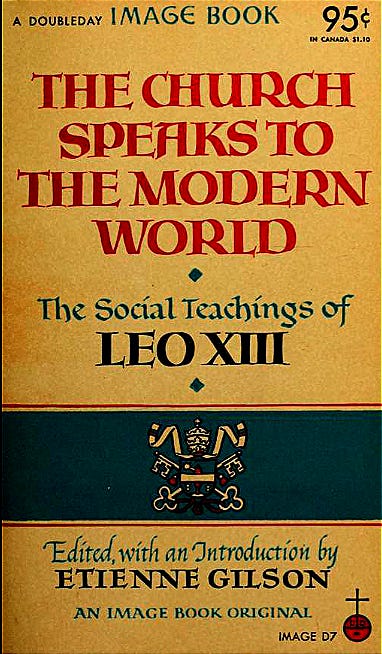
THE THE NINTH ENCYCLICAL
As is customary, the title of the ninth encyclical Sapientiae Christianiae - On Christian Citizenship is taken from the opening passage, which reads:
Sapientiae Christianae revocari praecepta, eisque vitam, mores, instituta populorum penitus conformari, quotidie magis apparet oportere.
This means, in English
It becomes more and more evident every day that the precepts of Christian wisdom must be recalled, and the lives, morals, and institutions of peoples must be thoroughly conformed to them.
The message of this encyclical teaches us how to live amidst the chaos of the modern world - produced by the defection from Christ.
It outlines the duties of Catholics to promote the Christian way of life - and to work towards the common good in every way we can.
Here again the Catholic Social Teaching combines spiritual and practical wisdom to promote human flourishing.
As Gilson’s excellent introduction makes clear, On Christian Citizenship differs from the previous eight encyclicals.
It does not deal with the problems between Church and State, nor with the moral and social collapse which follows from the pursuit of nihilistic Godless cults falsely promising prosperity, equality and liberation.
Instead, Sapientiae Christianiae
“…considers Catholics as citizens of the perfect society called the Church” -
In brief, it tells us what we must do to restore our civilisation - and that it is our duty to do it.
TAKE UP THE YOKE OF CHRIST
If this seems like a tall task, the simple and exhilarating wisdom of Pope Leo XIII reminds us of the true mission - and meaning - of our lives.
Sapientiae Christianiae reminds us that we have a duty, we are not alone, and that instead of shrinking from the magnitude of the task, we should be inspired.
“For the yoke of Christ is sweet, and His burden is light”.
What these duties are, how we should perform them, and why - is the subject of this, the last of the nine encyclicals of the Catholic Social Teachings of Leo XIII.
I paywall my Monday posts as a duty to those subscribers who pay for my work.
If you would like to read this but cannot pay, send me an email saying “SKINT” and I will let you in (if I believe you are not telling Tommy Peppers, that is).
My email is: frankwrighter@pm.me
If you have cancelled your paid subscription as it is too expensive to maintain, email me and I will gift you one, free of charge.



